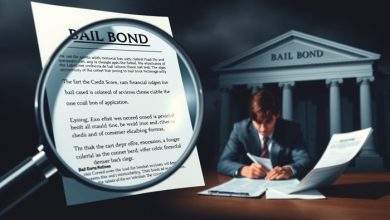
Truck crashes in New Haven often lead to catastrophic injuries, property damage, and extensive legal disputes. The aftermath can feel overwhelming, especially when victims face pressure from insurance adjusters and trucking companies seeking to limit their liability. Preserving evidence becomes the most critical step in building a strong claim. The quality and availability of proof determine how effectively a case demonstrates negligence and supports fair compensation.
Why Preserving Evidence Matters in Truck Accident Claims
Evidence is the foundation of every successful truck accident case. Physical proof, electronic records, and witness accounts all help reconstruct what happened and who is responsible. Much of this material can disappear within days if not properly secured. Victims who consult a New Haven truck accident lawyer early ensure that essential data remains protected. Federal trucking regulations require companies to maintain specific records; however, these documents are often destroyed or overwritten after short retention periods unless preservation requests are made promptly.
Documenting the Accident Scene Thoroughly
The scene of a truck collision contains invaluable information that supports later investigations. Victims or their representatives should capture photographs and videos from multiple angles, including vehicle damage, skid marks, road conditions, and nearby traffic signals. Collecting this visual evidence as soon as possible ensures that changing weather, cleanup crews, or road repairs do not erase key details. Recording the truck’s position, cargo type, and license information provides clarity that helps investigators accurately reconstruct events.
Gathering Contact Information and Witness Statements
Eyewitness testimony provides critical context that complements physical evidence. Individuals who observed the collision can describe driver behavior, traffic flow, and conditions leading up to the impact. Gathering their names, phone numbers, and written statements immediately helps preserve the accuracy of their memories. Independent witnesses often strengthen credibility since they have no financial interest in the case. Their accounts help confirm whether the truck driver followed safety regulations or made errors in judgment before the crash.
Securing Vehicle and Electronic Data
Modern commercial trucks contain advanced electronic control modules (ECMs) and event data recorders that capture performance information. These devices log speed, braking activity, throttle pressure, and other metrics in the moments immediately preceding an impact. A New Haven truck accident lawyer can issue formal letters demanding preservation of this data before companies attempt to erase or modify it. Accessing black box recordings often reveals violations of safety standards or hours-of-service regulations, providing objective proof of driver or company negligence.
Requesting Company Maintenance and Inspection Records
Trucking companies are required to perform routine maintenance in accordance with federal safety guidelines. Maintenance logs, inspection reports, and repair receipts show whether the vehicle was roadworthy at the time of the crash. If mechanical issues such as worn brakes or bald tires caused the collision, these records become vital evidence. Attorneys often send spoliation letters to ensure that the company retains all relevant documentation. Comparing inspection schedules with repair histories helps identify patterns of neglect or noncompliance.
Preserving Driver Qualification and Logbook Information
A driver’s employment file contains valuable insights into training, driving history, and disciplinary actions. Reviewing these records helps determine whether the company ignored previous violations or hired an unqualified operator. Logbooks reveal whether the driver exceeded legal limits on working hours, leading to fatigue-related errors. Correlating this information with GPS data, fuel receipts, and dispatch communications uncovers inconsistencies that suggest falsified reporting. Keeping these materials intact strengthens the connection between regulatory violations and the resulting accident.
Collecting Medical Evidence and Injury Documentation
Medical records form the link between the collision and the injuries sustained. Seeking immediate evaluation after a crash ensures that injuries are properly diagnosed and documented. Victims should maintain copies of all hospital reports, imaging results, and treatment plans. Photographs of visible injuries and personal journals that describe pain or progress in recovery also reinforce claims for damages. Consistent medical documentation helps establish both the severity of harm and the long-term impact on quality of life.
Preserving Communication with Insurance Companies
Insurance representatives often contact victims quickly, requesting recorded statements or offering early settlements. Keeping records of every communication, including emails, letters, and call logs, protects claimants from misrepresentation or pressure tactics. Written correspondence ensures that discussions remain traceable and prevents disputes over what was said. Victims should avoid signing documents or accepting offers before reviewing them with legal counsel to safeguard their rights and prevent undervalued settlements.
Using Expert Analysis to Support the Evidence
Accident reconstruction specialists, engineers, and medical professionals play crucial roles in interpreting preserved evidence. They analyze photographs, electronic data, and injury reports to clearly explain cause and effect. Their expert opinions translate technical details into understandable conclusions that strengthen courtroom arguments. Collaboration between investigators and legal teams ensures that every piece of collected information contributes to a cohesive and persuasive claim.
Promoting Accountability Through Effective Evidence Preservation
Proper evidence preservation not only supports individual claims but also holds negligent trucking companies accountable for unsafe practices. Each documented fact, from maintenance records to black box data, builds a transparent record of responsibility. Acting swiftly, securing all materials, and maintaining organized records empower victims to present their cases with confidence. When evidence remains intact, it becomes far harder for negligent parties to evade responsibility, helping create safer roads for everyone traveling through New Haven and beyond.




